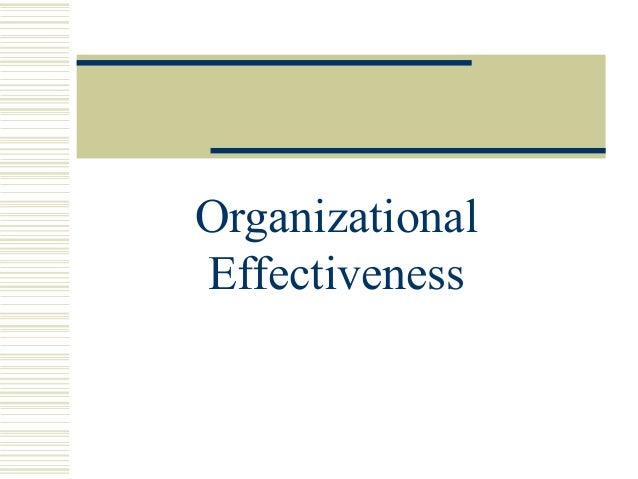Middle Management: A Vital Link In Organizational Effectiveness And Employee Satisfaction

Table of Contents
Bridging the Gap: Middle Management as a Communication Hub
Middle management acts as a vital communication hub, ensuring smooth information flow between upper management and frontline employees. This two-way communication is essential for effective collaboration and achieving organizational objectives. Without strong middle management, communication can break down, leading to misunderstandings, decreased productivity, and low morale.
- Relaying strategic directives from leadership to teams: Middle managers translate complex strategic plans into actionable steps for their teams, ensuring everyone understands the company's vision and goals.
- Gathering feedback from employees and communicating it upwards: They act as a conduit, conveying employee concerns, suggestions, and feedback to senior leadership, fostering a culture of open communication and transparency.
- Clarifying company goals and expectations: Middle managers clarify ambiguous directives, ensuring their teams are fully informed and aligned with overall company objectives.
- Addressing employee concerns and resolving conflicts: They act as mediators, resolving conflicts within their teams and addressing individual employee concerns before they escalate into larger issues. Effective communication is key to preventing these issues from arising in the first place.
Driving Performance and Productivity Through Effective Middle Management
Effective middle management is essential for driving performance and boosting productivity. They are directly responsible for setting goals, monitoring progress, and motivating their teams to achieve outstanding results. This involves a blend of leadership, coaching, and performance management strategies.
- Setting achievable team goals aligned with overall company objectives: Middle managers translate overarching company goals into specific, measurable, achievable, relevant, and time-bound (SMART) goals for their teams.
- Providing regular performance feedback and coaching: They offer consistent feedback, both positive and constructive, to guide team members and help them improve their performance. Regular coaching sessions help individuals grow professionally and reach their full potential.
- Identifying and addressing performance issues promptly: They proactively identify potential performance issues and address them quickly, preventing minor problems from becoming major obstacles.
- Recognizing and rewarding employee contributions: Acknowledging and rewarding employee achievements fosters motivation and boosts team morale. This simple act can significantly increase employee engagement.
- Implementing performance improvement strategies: When performance issues arise, middle managers implement tailored strategies, providing support and resources to help employees improve their skills and output.
Fostering Employee Satisfaction and Engagement: The Human Side of Middle Management
Middle managers play a crucial role in creating a positive and supportive work environment that fosters employee satisfaction and engagement. Their ability to build strong relationships, promote open communication, and provide mentorship is paramount to employee well-being and retention.
- Building strong relationships with team members: Middle managers invest time in getting to know their team members on a personal level, fostering trust and rapport.
- Promoting open communication and trust: They encourage open dialogue and create a safe space for employees to share their ideas and concerns without fear of reprisal.
- Providing opportunities for professional development: They champion employee growth by offering training opportunities, mentorship, and challenging assignments. Investment in employee development increases retention and fosters a culture of continuous learning.
- Offering support and mentorship: They act as mentors and provide guidance to their team members, helping them navigate challenges and develop their careers.
- Addressing employee concerns and promoting work-life balance: They are attentive to employee needs, addressing concerns and supporting a healthy work-life balance.
Developing Effective Middle Management Skills: Training and Development
Investing in ongoing training and development programs for middle managers is crucial for organizational success. Providing them with the necessary skills and knowledge equips them to excel in their roles and effectively lead their teams.
- Leadership training programs: These programs equip middle managers with essential leadership skills, such as delegation, decision-making, and conflict resolution.
- Communication skills workshops: Improved communication skills are vital for fostering collaboration and building strong relationships within the team.
- Conflict resolution training: Effective conflict resolution strategies minimize disruptions and maintain a productive work environment.
- Performance management training: Proper performance management techniques ensure fair and effective evaluation of employee performance.
- Mentorship programs: Pairing experienced middle managers with those newer to the role provides valuable support and guidance.
Investing in Middle Management for Organizational Excellence
In conclusion, effective middle management is not merely a component of success; it's the cornerstone. They play a multifaceted role in fostering communication, driving performance, boosting employee satisfaction, and ensuring organizational excellence. By investing in training and development programs for middle managers, organizations can cultivate strong leadership, enhance communication, and create a supportive work environment that attracts and retains top talent. Strengthen your organization's foundation by investing in your middle management team today. Effective middle management, strong middle management, and well-developed middle management strategies are vital for achieving long-term success.

Featured Posts
-
 Erik Ten Hag The Latest On His Managerial Future
May 23, 2025
Erik Ten Hag The Latest On His Managerial Future
May 23, 2025 -
 Helicopter Rescue Cows Airlifted From Isolated Swiss Location
May 23, 2025
Helicopter Rescue Cows Airlifted From Isolated Swiss Location
May 23, 2025 -
 Lluvias Moderadas La Prevision Meteorologica Actualizada
May 23, 2025
Lluvias Moderadas La Prevision Meteorologica Actualizada
May 23, 2025 -
 Us To Stop Minting Pennies What This Means For The Economy
May 23, 2025
Us To Stop Minting Pennies What This Means For The Economy
May 23, 2025 -
 Sylvester Stallones Tulsa King Season 2 A Blu Ray Sneak Peek
May 23, 2025
Sylvester Stallones Tulsa King Season 2 A Blu Ray Sneak Peek
May 23, 2025
Latest Posts
-
 Dc Legends Of Tomorrow Frequently Asked Questions And Answers
May 23, 2025
Dc Legends Of Tomorrow Frequently Asked Questions And Answers
May 23, 2025 -
 The Last Rodeo Exploring Neal Mc Donoughs Character
May 23, 2025
The Last Rodeo Exploring Neal Mc Donoughs Character
May 23, 2025 -
 A Deep Dive Into Dc Legends Of Tomorrow
May 23, 2025
A Deep Dive Into Dc Legends Of Tomorrow
May 23, 2025 -
 Neal Mc Donough And The Last Rodeo A Western Showdown
May 23, 2025
Neal Mc Donough And The Last Rodeo A Western Showdown
May 23, 2025 -
 Dc Legends Of Tomorrow Team Building And Optimization
May 23, 2025
Dc Legends Of Tomorrow Team Building And Optimization
May 23, 2025
